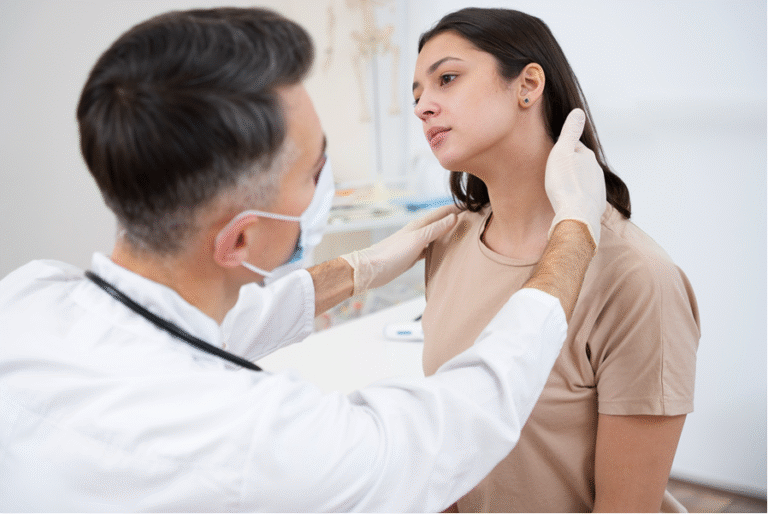Advancements in medical technology have transformed the way complex conditions involving the salivary glands, throat, and neck are diagnosed and treated. One of the most significant breakthroughs is sialendoscopy, a minimally invasive technique used to manage salivary gland disorders. For patients seeking an expert in head and neck surgery in London, understanding this procedure and other available treatments can help you make informed decisions about your health.
This guide explains what sialendoscopy in London involves, when it is recommended, what to expect from the procedure, and how head and neck specialists provide comprehensive treatment options.
Understanding Sialendoscopy
Sialendoscopy is a modern, minimally invasive procedure designed to diagnose and treat conditions affecting the salivary glands. It uses a small endoscope to examine the salivary ducts and, when necessary, remove blockages or stones causing discomfort and swelling.
The salivary glands produce saliva, which plays a vital role in digestion and oral health. When the ducts become blocked, patients may experience symptoms such as:
- Swelling in the face or neck
- Pain when eating
- Dry mouth
- Recurrent infections
By addressing these issues without the need for open surgery, sialendoscopy in London offers an effective solution with quicker recovery and less discomfort.
How Sialendoscopy Works
During a sialendoscopy procedure, a thin, flexible endoscope is inserted into the salivary duct to locate the source of the problem. Once identified, the surgeon can:
- Remove small stones or debris blocking the duct
- Dilate narrowed ducts to improve saliva flow
- Deliver medication directly to treat inflammation or infection
Because the procedure is minimally invasive, there is no need for large incisions, reducing the risk of scarring and complications. Most procedures are performed under local or general anaesthesia, depending on the severity of the condition.
Benefits of Sialendoscopy
Patients who undergo sialendoscopy in London experience several advantages compared to traditional surgical methods:
- Minimally Invasive – Avoids large incisions and reduces tissue trauma
- Faster Recovery – Most patients can resume daily activities within a few days
- Less Pain and Swelling – Lower levels of post-operative discomfort
- Preservation of Salivary Glands – Reduces the need for complete gland removal
- High Success Rates – Effective in resolving obstructions and restoring normal function
When Sialendoscopy Is Recommended
Sialendoscopy is typically recommended when patients experience:
- Recurrent swelling of the salivary glands
- Salivary gland stones (sialolithiasis)
- Chronic or recurrent salivary gland infections
- Narrowing or strictures in the ducts
- Autoimmune conditions affecting the salivary glands, such as Sjögren’s syndrome
An expert in head and neck surgery in London will perform a detailed evaluation, including imaging tests like ultrasound or MRI scans, to determine whether sialendoscopy is the right treatment.
Other Head and Neck Treatments
Beyond sialendoscopy, head and neck specialists provide treatments for a wide range of conditions affecting the throat, salivary glands, lymph nodes, and surrounding structures. These may include:
1. Salivary Gland Surgery
In cases where stones are too large or the gland is severely damaged, partial or complete removal may be necessary.
2. Thyroid and Parathyroid Surgery
For conditions such as thyroid nodules, goitres, or hyperparathyroidism, surgery may be recommended to restore proper gland function.
3. Head and Neck Cancer Treatments
Specialists diagnose and treat cancers affecting the mouth, throat, and salivary glands using advanced surgical techniques combined with radiotherapy or chemotherapy when needed.
4. Minimally Invasive Techniques
Modern approaches prioritise less invasive procedures whenever possible to reduce scarring, speed up recovery, and improve overall patient outcomes.
Choosing the Right Expert in London
Finding an expert in head and neck surgery in London is essential for accurate diagnosis and successful treatment. When selecting a specialist, consider:
- Experience and Qualifications – Choose a consultant with extensive expertise in both routine and complex procedures.
- Access to Advanced Technology – Clinics offering the latest imaging tools and surgical equipment provide more precise and effective treatments.
- Comprehensive Care – Look for specialists who offer a full range of treatments, from non-invasive procedures to complex surgeries.
- Patient Reviews and Success Rates – Positive feedback and proven outcomes are key indicators of high-quality care.
What to Expect Before and After the Procedure
Before Sialendoscopy
- You will undergo a detailed assessment, including imaging scans, to locate any blockages.
- Your surgeon will explain the procedure, risks, and expected results.
- In most cases, you can eat and drink normally before the procedure unless instructed otherwise.
After Sialendoscopy
- Most patients experience mild swelling or tenderness that resolves within a few days.
- Your surgeon may recommend pain relief or anti-inflammatory medication.
- Follow-up appointments will ensure proper healing and restored salivary gland function.
Conclusion
Sialendoscopy in London has revolutionised the treatment of salivary gland conditions, offering a safe, minimally invasive alternative to traditional surgery. By consulting an expert in head and neck surgery in London, you can benefit from advanced diagnostics, precise treatments, and faster recovery times. Whether you are dealing with blocked ducts, infections, or more complex head and neck issues, modern techniques ensure effective solutions with minimal disruption to your daily life.


